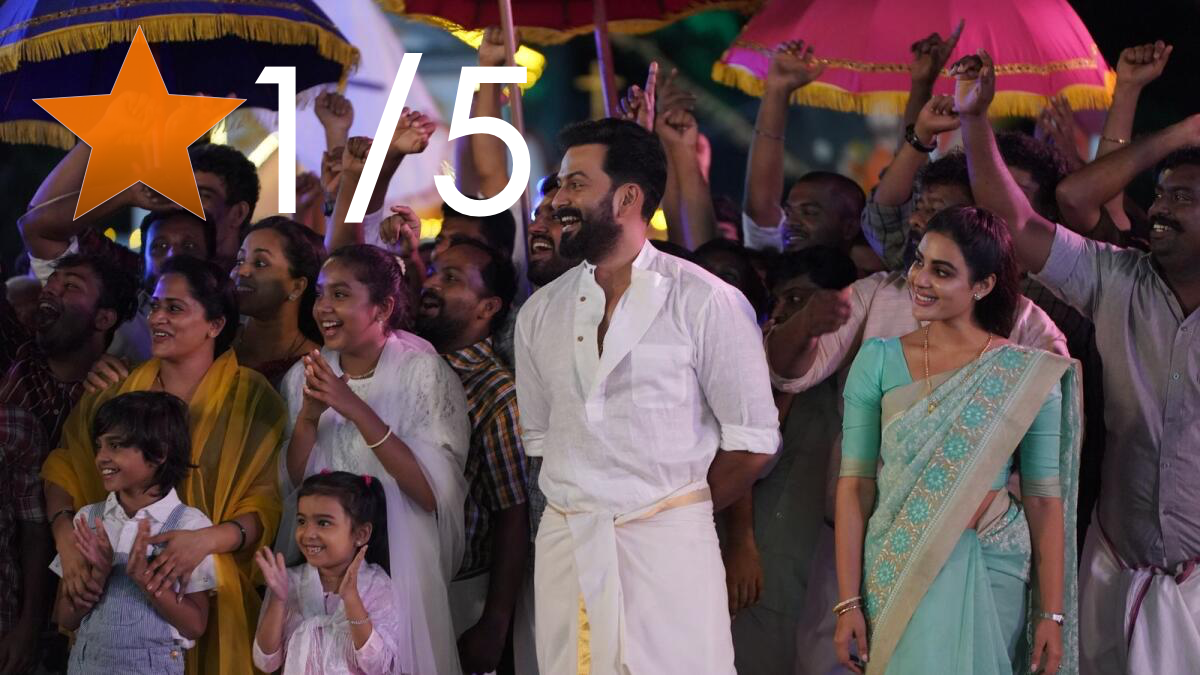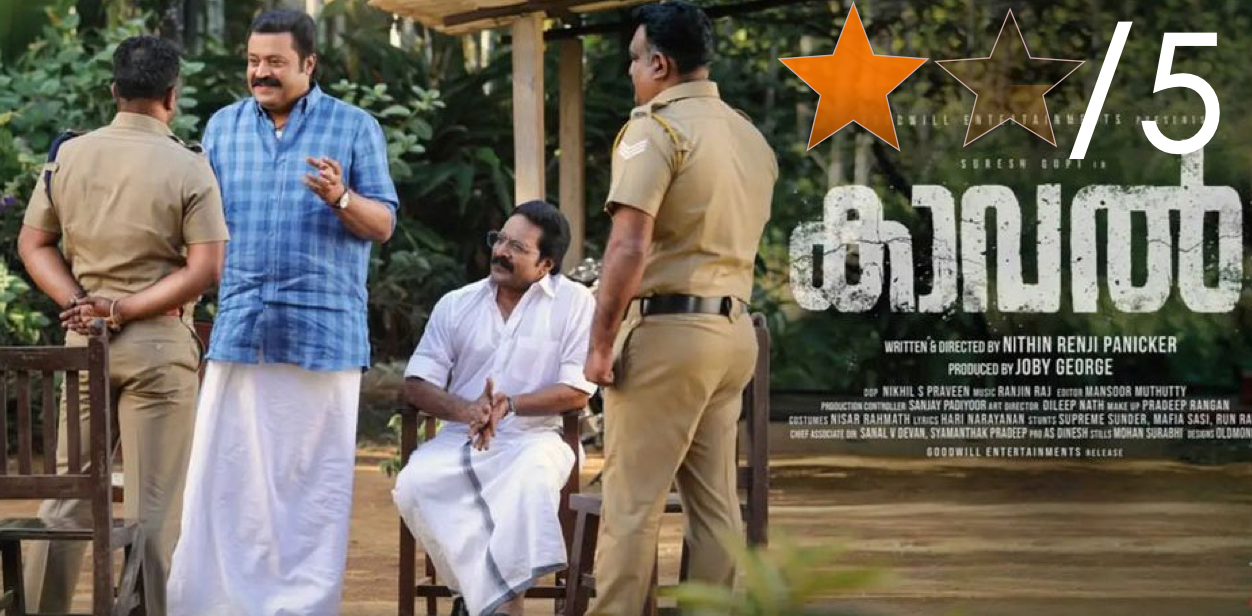Arabikatha, In theatres
It takes a while, after watching it, to reflect on “Arabikatha”. Maybe, that’s what good movies feel like. Arguably Lal Jose is malayalam cinema’s finest living commercial film maker. We saw the sparks in “Randam Bhavam“, (but when the Govindji, the villain was set free by the protagonist, the movie flopped and a lot of us were sad about that). “Meesha Madhavan” and “Maravathoor Kanavu” despite the slap stick element, portrayed the village life with all its energy. “Classmates” defined the campus as it is, without exaggerations, chocolates and Kunchacko Boban – a movie that will be remembered for ever. “Arabikatha” is not a masterpiece, but the movie is Lal Jose coming of age, emboldened. Like the saying goes, Lal Jose pulls a chair and takes a seat right there in the verandah of malayalam movie industry. “Arabikatha” – movie of our times.
In 2157 (random year, no particular significance, just thought its cute) if a curious alien wants to know what characterized the Kerala society in 2007, he could perhaps watch “Arabikatha”. Lal Jose talks live issues here. Isn’t that what a good art form does?
The story (according to the film makers)
“Arabikatha’ narrates the story of Cuba Mukundan (Sreenivasan) who can be called an “Ëœimpractical idealist.’ He is a staunch leftist who lives for the movement. Circumstances force him to take up a job in West Asia. But he finds himself a misfit in a highly materialistic world. He has always had a soft corner for China as a result of his leftist leanings and when he meets a Chinese girl, she quickly finds a special place in his heart.”
Film makers often fear to touch the communists,(and most often it is for singing praises) – they fear to touch live issues too. Lal Jose does both. Cuba Mukundan, the central character played by Sreenivasan is, when you think about it, the “party” itself. With all that is right about it and many things that are outdated. Lal Jose shows the decay with deep sympathy, as a true artist and like the touching poem in the movie, finds light at the end of the tunnel.
The Good :
- It is a Director’s movie. Lal Jose conveys the message and the issue like he wants (and the way it should be) despite a below average script.
- Talks Politics with clarity. This movie isn’t like saying its main character Gurukant Desai is no way related Dhirubhai Ambani. (Like some of our best directors do). The director walks the line of fire and never says sorry (to the Champagne socialists or the apolitical trolls)
- Highly enjoyable. The movie is fun. Even in the fourth week of release, there were standing ovations across the length of the movie.
- The poem, when the credits rolled. At the moment, poetry is back. The songs are really cool and they are circulating like hot idlis.
- Deep Impact. The junta is discussing a movie and the issues it has raised like never before. Cuba Mukundan has become a household name.
The Bad :
- The script. It is weak at very critical points like why Cuba Mukundan left his village, on which rest of the story is built. It’s over emphasis on the cliched Sreenivasan jokes and communist jokes (like when Mukundan says he would rather work in Cuba or China, rather than Dubai).
- The script. When Mukundan asks the Chinese girl whether she knows comrades AKG and Krishnapilla, it is an open challenge to the characters sanity – and our intelligence. When every other malayali in Dubai knows Chinese, the script fails us again.
- The Chinese element. Could have done without it, atleast minimized the toll.
Verdict : 3 stars out of 5. Must Watch!
Super hit. If you read newspapers, you’ll like it. If you are out of touch, you could start here. Such movies come rarely, Go watch it. (Do yourselves a favour).
Reactions :
Local bar, college kids, overheard,
“If you drink, the party can suspend you”
“No the movie clearly says the guy was suspended because he drank in secret”
Roomies,
“That lady, your Project Manager, is a pain, ain’t she?”
“Like Mukundan said, certain pains are nice to live with”
Local bar, overheard,
“I won’t pay your bill. Like Mukundan, I carry money only for my immediate needs. I am a communist”
“Since when!”
“Matinee”




I had watched this movie with Mrs. and Mr. Birenjith, Mr. PC, Mr. Rahul Das and Mr. V. S. Achuthanathan. Oh Ya and Mr. Balagopal and Mr. Alphonse Kannanthanam.
I watched with Dhomman, Bijoy, Kofta and Murali.
Oh sheri…sammathichu..ottum show off illatha oru sakhav 🙂
That was a fun read, bvn. And as u said, an absolutely delectable movie, no doubt…
🙂
pretty average movie…stereotypes all around…this would not be the Kerala of 2007, but another 20 years back…
Jay,
Guess I’m getting all 1987 newspapers now, this paper boy 🙂
Here is my take on it
http://chall-dhanno.blogspot.com/2007/08/arabian-tale.html
I liked the Gulf part also, it is said to be near perfect. I happened to talk to a person who spend around 5 yrs in Gulf and he said, there are situation even worse than these.
My take on the move:
I feel bad for what has happened to his father and the circumstances. But over all he deserved everything that happened to him. He has know idea how the world really works, he had never did a hard days full labor in his life or earned a buck in his life. Sure he got beat up in his protest and all and he lived for the people. But before you live for others figure out what life is and live it! BTW Karl Marx was a dumb @$$ in his time he was 1 out of 1000 people who got a education in college yet couldnt make a buck to save his balls.
[…] https://tvmtalkies.com/archives/240http://varnachitram.com/2007/07/09/review-roundup-arabikatha/ […]